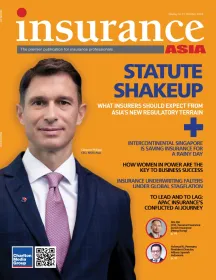
Tourism surge leads to more uninsured patients at Japanese hospitals
Nearly 30% of visitors to Japan are uninsured.
As Japan experiences a surge in tourism, the country’s top-tier medical facilities are seeing a rise in foreign patients seeking treatment. However, a significant number of these patients are leaving without paying their bills.
A survey by the Japan Tourism Agency conducted between October and February revealed that nearly 30% of visitors to Japan are uninsured. Nationwide, hospitals are feeling the financial strain.
In fiscal 2022, the health ministry reported that nearly 30% of medical institutions had encountered unpaid bills from non-Japanese patients, which include both tourists and foreign residents. The total owed by foreign patients was approximately $5.63m, which represents 1.4% of all unpaid medical fees in Japan.
The number of tourists seeking medical treatment is increasing. In 2023, Tokyo hospitals received 3,283 foreign patients, a significant rise from 624 in 2022 and 2,620 in 2019, according to the Tokyo Fire Department.
Unpaid bills become bad loans when patients leave Japan. To combat this, the government started checking the names of incoming visitors against a list of defaulters in May 2021.
This list includes individuals with debts of 200,000 yen or more, compiled by the health ministry and shared with the Immigration Services Agency. So far, 27 medical institutions have reported 52 non-Japanese defaulters, collectively owing 89 million yen.
St. Luke’s International Hospital in Tokyo’s Chuo Ward treats over 2,000 foreign emergency patients annually. Of these, around 30 patients leave with unpaid bills. Visitors to Japan are required to cover the full cost of medical treatment unless they have a Japanese health insurance card.
“We want there to be an institutional arrangement that, for example, requires visitors to Japan to have an appropriate insurance policy when they enter the country,” a St. Luke’s official stated.
The hospital attempts to collect payments before patients leave, but some refuse. If the patient has overseas insurance, the hospital reaches out to the insurer, though this can lead to disputes over costs.
When a patient is uninsured, the hospital sends a bill to their address, but payment is rarely received.
Currently, hospitals have no recourse for recovering losses from unpaid bills by foreign visitors, forcing them to absorb the costs.
St. Luke’s is addressing the issue by implementing a payment system that handles foreign currencies and offers various payment options. They also inform patients in advance about the potential cost of treatment.



















 Advertise
Advertise


